NetZeroCities
Research and Innovation Action (RIA)
Authors: Mrs. Lina LIAKOU, Eurocities (Brooke Flanagan, Natalia Altman, Nick Rendle), Climate-KIC
(Joanna Kiernicka-Allavena), ICLEI (Allison Wildman, Monika Heyder, Simon Gresset) ,
EIT-Urban Mobility (Adriana Diaz, Mónica Castañeda), Energy Cities (Amelie Ancelle), ERRIN
(Heidi Johansson, Ryan Titley) and Viable Cities (Asa Minoz, Lena Holmberg)
Cities are leading the efforts toward achieving the climate goals and commitments set by the EU Green Deal. NetZeroCities, as
part of the Horizon 2020 Research and Innovation Programme will support cities in overcoming the current structural,
institutional and cultural barriers they face in order to achieve climate neutrality by 2030 and will directly support the European
Commission?s Mission of ?100 Climate-Neutral and Smart Cities by 2030?. This report, as a first step, compiles the
experiences of a sample of participating cities and documents their needs, drivers and barriers to achieving this goal. This
assessment has been carried out through 10 focus group discussions and an associated survey, facilitated by the city network
partners of the NZC consortium, with each meeting curated along specific themes in line with the Mission for Cities. Together,
the meetings engaged 64 cities from 22 EU Member States and 3 Associated Countries. These cities capture typological
diversities along geography, size and level of maturity of climate action. Additionally, preliminary results from the Mission Call
for Expression of Interest, which gathered data from 362 cities from all EU Member States and Associated Countries, have also
been integrated. It is clear from the research with the cities that their needs, drivers and barriers to climate neutrality can be
defined under five key enabling themes: policy and governance; implementation practices; culture, social innovation and
participation; finance and business models; and strategic learning. Cities recognise that the target of climate neutrality requires
a multi-governance collaboration with all stakeholders on board. Climate City Contracts have been identified not only as a tool
to engage local communities and stakeholders but as a process that can build trust, transparency and support to accelerate the
transition. Recognising that fragmentation of responsibilities and a siloed structure of working remains a crucial barrier, cities
are in need of more support through enabling regulatory frameworks at the national level. There is consensus on the need for a
systemic approach and new governance model that links different action plans into one overarching environmental strategy.
The majority of cities also recognise that there is a disconnect between strategy-making and implementation



